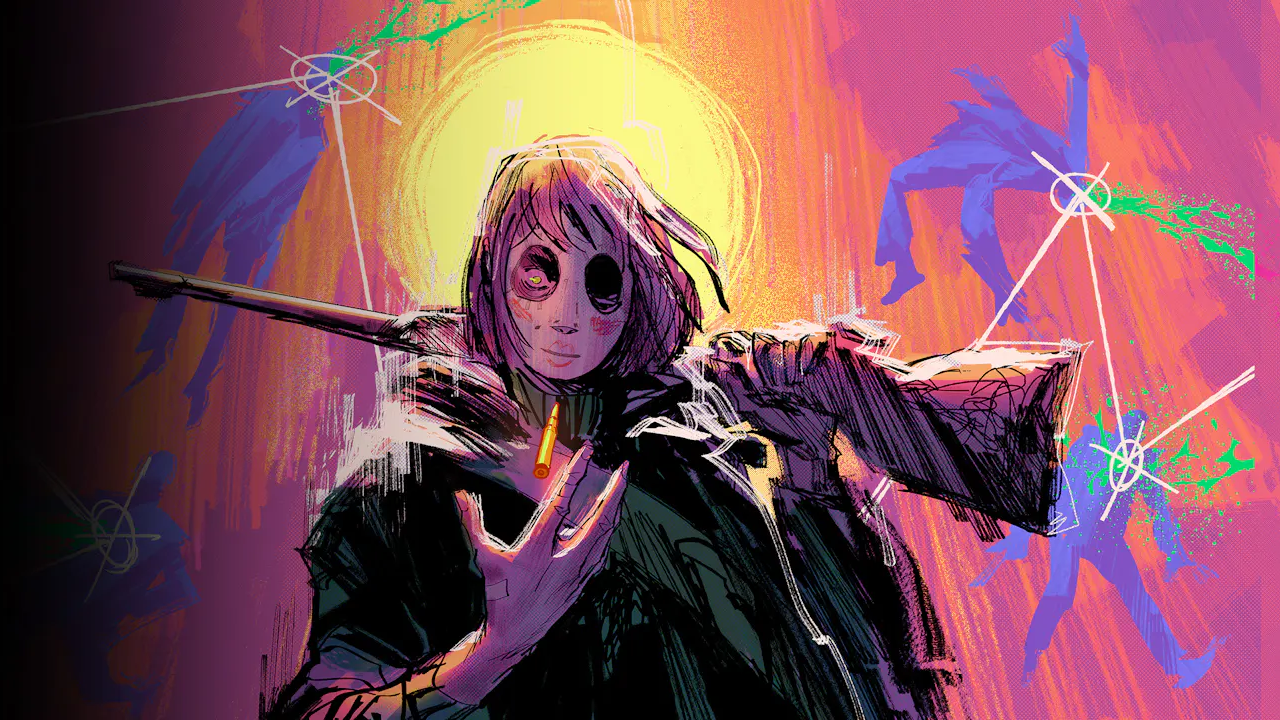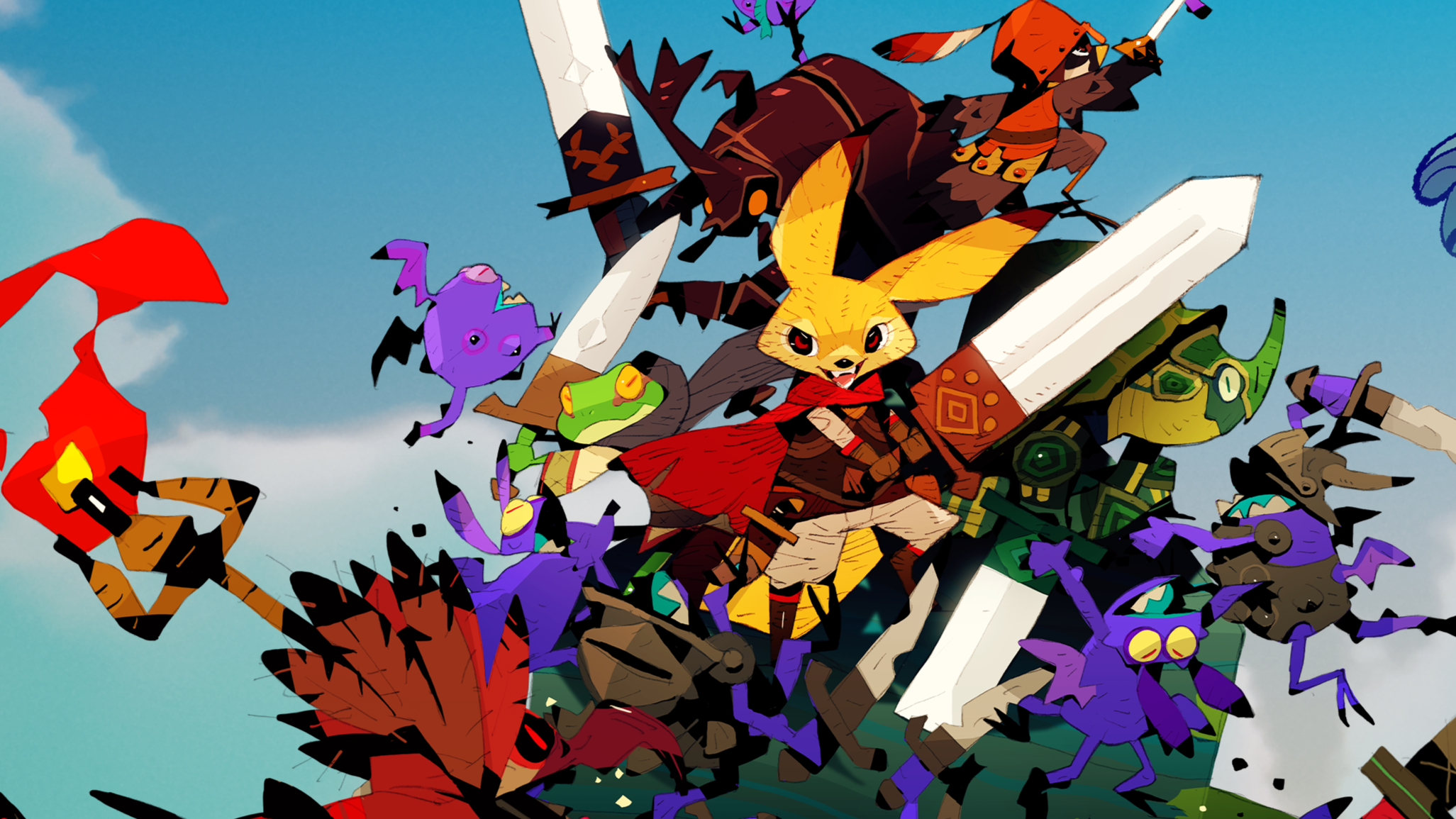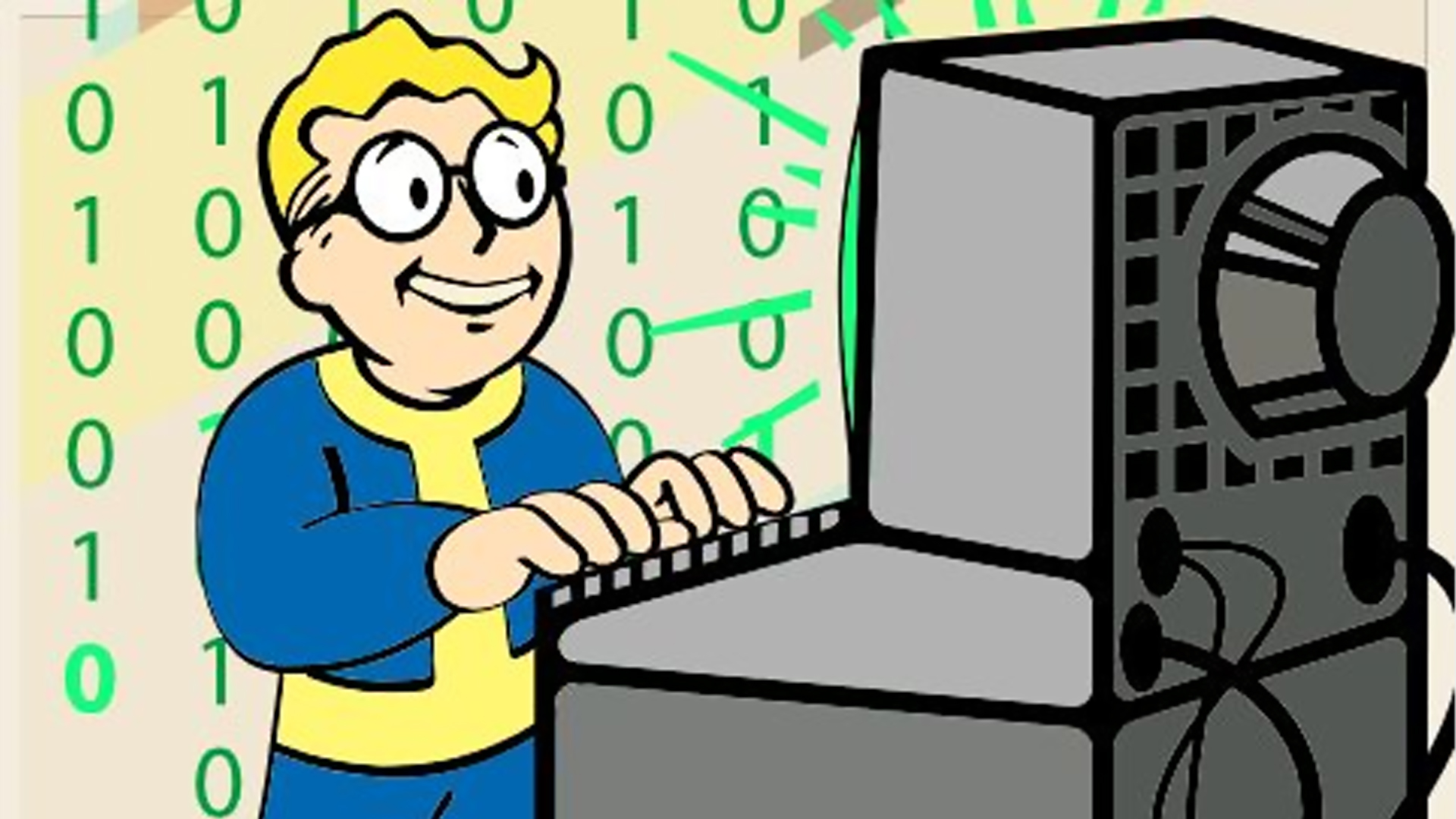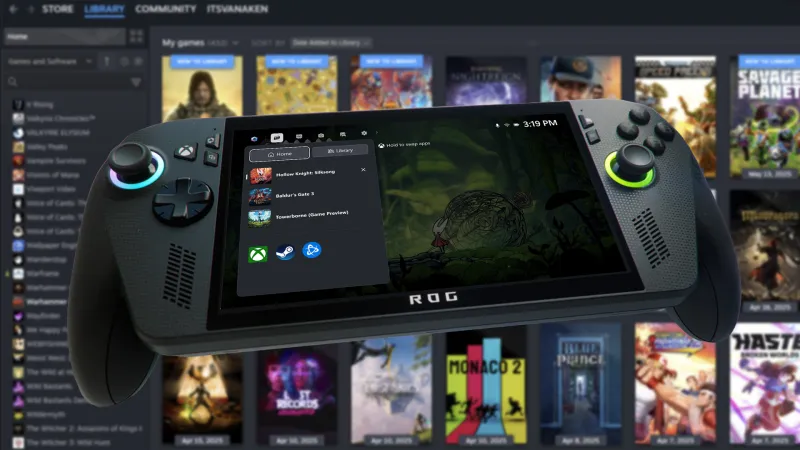
Wipe out a cult with a single bullet.
What is it? A sniping puzzle game where you telekinetically control your bullet.
Release date April 9, 2024
Expect to pay $15/£12.80
Developer René Rother
Publisher Devolver Digital
Reviewed on Intel Core i7-10750H, 16GB RAM, GeForce RTX 2060
Steam Deck Verified
Link Official site
There are 11 cultists in front of me, and only one round in my sniper rifle. Not that I need any more to near-instantly clear out entire compounds in this game of supernatural executions and flawlessly executed plans. My primary goal—as an ex-cult-member out for revenge—is to kill scores of anonymous cultists across stark, grungy levels until I can finally take out their leader. All I need is my rifle, one bullet and—oh yes—my telekinetic powers.
Planning is at the heart of Children of the Sun, as you first scout out each level by finding and tagging all the enemies, Far-Cry-style. There’s no stealth element, however, as you’re not actually moving around the level itself but running rings around its perimeter, from a place of safety. Instead, it’s your bullet that gets its, er, casing dirty, as it pings from enemy to enemy in the guts of the level. You have the telekinetic ability to move the bullet after it’s been shot, and the main way you’ll be taking advantage of this is by flinging it from one exploded head to another.
But the order in which you kill enemies is vitally important. It’s the difference between failing the stage or clearing it—and getting your username out of the bowels of the leaderboards. So, who do you shoot first? And where are you going to ride the bullet from there? After you’ve initially fired the gun, you can only see what the bullet sees, so it’s very easy to get into a position where there are no enemies in sight for you to leap to. Miss at any point and you’ll have to restart the level, though mercifully enemies you’ve tagged stay tagged even when you fail.
(Image credit: René Rother)
As you may have guessed, there’s a heavy puzzle element to Children of the Sun, although certain abilities—and more resilient enemies—gradually dial up the amount of skill required to put your plans into action. The first power you acquire is to steer the bullet mid-flight—only a little, but enough to swerve around obstacles, or to make sure you’re hitting vital enemy weak spots. Thankfully, this power also slows down time, so you won’t need killer reflexes to execute these perfect shots.
The second ability, Re-Aim, sets an entirely new trajectory for the bullet, essentially letting you do a U-turn in mid-air. This extremely useful power needs to be charged up before use, by shooting two enemy weak spots (usually their heads), although up to three charges can be stored for later use. Combine these two handy powers with the final one—Power Shot, which lets you kill armoured enemies by ramping up the bullet speed—and later levels make you feel like a telekinetic god.
Here’s an example from a late-game stage: a graveyard punctuated by floating debris. Having decided on my first enemy, I perform a Power Shot to rip through his armour, then whip around and shoot his mate (hiding behind a riot shield) in his now unprotected head. The third man in this group, fleeing for dear life, is soon relieved of his noggin, giving me a charged Re-Aim I can use to defeat a psychic on the opposite side of the graveyard. His psychic shield will deflect my bullet, but it takes a little time to recharge, giving me the chance, if I’m quick enough, to do a U-turn and snipe him in his briefly vulnerable head.
It looks amazing, and it often feels amazing—the result of minutes of repeated practice—and it’s less than half the cool manoeuvres I need to perform to finish the level. This final try, after I had perfected the process, must have taken me under a minute—time being one of the factors that determines your score at the end of each stage.
Snipe dream
(Image credit: René Rother)
That god-like feeling quickly crumbles when you look at the leaderboard and see your name at 557th place, but this is a game meant to be played multiple times (you can replay completed levels in any order). You can also start a level from anywhere—from anyone, I should say—and usually make it work, although more powerful enemies have certain criteria that need to be met first.
Begin the stage from the opposite side and you may discover a parked car that you can explode and use as a stepping stone, or a flying bird you can leap to for a new perspective on the scene. At times you feel like Corvo Attano, chaining awesome powers together in a Dishonored sandbox, although there is less flexibility here when things go wrong. It’s all too easy to reach a dead-end with no targets in sight, or to miss a weak spot by a couple of pixels and forfeit a Re-Aim that you need to finish the level.
It’s this inflexibility—the impossibility of thinking on your feet and recovering from fuck-ups—that makes it difficult to feel a sense of triumph when you do succeed. You’re following a plan, and you’ve finally achieved it through sometimes painful repetition. It’s not a sense of exhilaration so much as relief. Though that’s not to devalue the thrill of scouting out a level and testing your plans, before you set them in stone.
(Image credit: René Rother)
The final level in particular is like a heist, as you pop heads to lower magical barriers and gradually make your way towards the heavily guarded leader. Here, everything you’ve learned builds to a crescendo: a moment of transcendent mastery, even if I was screaming at my laptop a lot of the time.
But where do you go from there? Where can you go, after mastering a game? You can master it better, improving your scores on the previous stages, but when half those stages feel like training grounds, I don’t feel terribly compelled to look backwards. This is a game crying out for challenge levels, more stages that give you your full suite of powers. Finishing it makes you feel like you’re just getting started.





